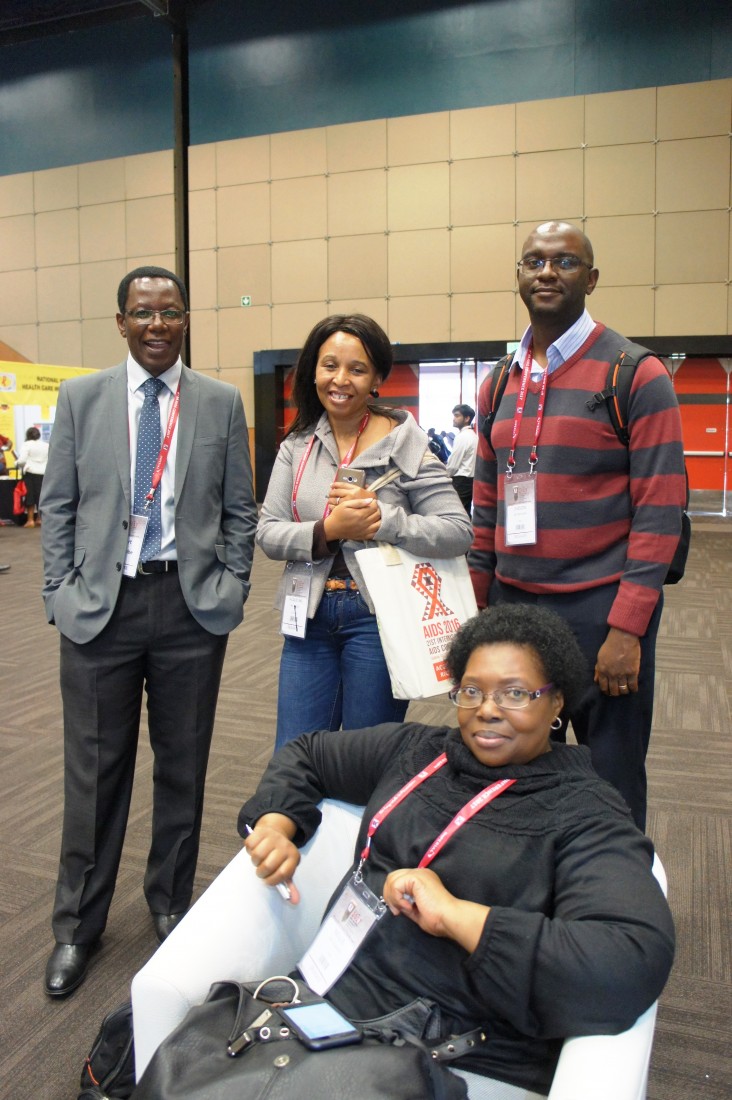
REMARKS BY USAID/SOUTHERN AFRICA DEPUTY MISSION DIRECTOR, ALONZO WIND
Good morning and thank you on behalf of the United States government for the opportunity to join you for this session.
As you just heard from Dr. Pillay, South Africa is burdened by one of the most severe TB epidemics in the world, while also dealing with the greatest burden of HIV-infected individuals.
South Africa’s tuberculosis prevalence is the world’s third highest and millions are living with HIV/AIDS, with hundreds of thousands of new infections each year.
In this environment, leadership is essential. And leadership – world-class leadership – is what South Africa has in Dr. Aaron Motsoaledi, the Minister of Health, and his team at South Africa’s National Department of Health.
Minister Motsoaledi knows a little about fighting the good fight. And that’s exactly what he and his colleagues have been doing in the battle against TB and HIV/AIDS.
South Africa has made remarkable progress in responding to the HIV/AIDS epidemic, and has the largest antiretroviral treatment program in the world, an accomplishment which speaks for itself and one of which you should be proud.
We all know that, without addressing TB, and the growing threat of MDR-TB, we will be hard-pressed to control the AIDS epidemic. I’m pleased to say that South Africa has made tremendous progress in responding to the TB epidemic. And, in doing so, it has demonstrated global leadership.
But as we have already heard, despite our achievements, there is clearly a long way to go.
The U.S. government supports South Africa’s National Strategic Plan on HIV, TB and STIs which was launched in March this year and pledges to work with the national government to achieve the 90-90-90-goals as set by the UN.
Just a few months ago, I joined Minister Motsoaledi at the world premiere of the USAID and PEPFAR supported movie – The Lucky Specials. Entertainment comes first, and I highly recommend you stream the movie from theluckyspecials.com [The Lucky Specials dot com], but there is fantastic educational element too. The Minister appeared to enjoy the movie… although I’m not sure he was too happy about the storyline indicating that waiting times in the clinic were a little long!
I’m proud that the United States government has been a strong partner with South Africa in the fight against TB and we will continue to partner because, despite great success, there is still much to do.
USAID worked closely with the Minister, Dr. Pillay and his team at the National Department of Health to develop a $65 million, five-year follow-on TB assistance project. This technical assistance activity will, among other things, focus on the 90-90-90 priorities for TB championed by Minister Motsoaledi and address objectives contained in the White House’s National Action Plan for Combating Multidrug-Resistant TB.
I will leave it to our good friend, Dr. Robert Makombe, who is speaking shortly, to go into greater detail on USAID’s Tuberculosis South Africa Project. Lovingly known as T.B. SAP – but only because government bureaucrats love a good acronym. Don’t tell our communications team I used the dreaded acronym. Hopefully they are not listening!
South Africa has led the world in the implementation of a wide range of innovative approaches to prevent, diagnose, and treat the disease, from early adoption of the GeneXpert diagnostic platform, through its commitment to addressing TB among prisoners and miners, to ambulatory care of MDR-TB patients.
In recent years, South Africa has not only been a trailblazer in TB care and treatment, but in its efforts to utilize new diagnostics to identify drug-resistant cases, simplify access to MDR-TB care, and rapidly incorporate new drugs into its regimens.
USAID will continue to work with the national government to expand the access to TB services among vulnerable and hard-to-reach populations, including people living with HIV, mineworkers, pregnant women, and children. This remains the critical and important component of our TB programs.
Mobilizing leaders at national, provincial and community level is the key to promoting the uptake of health services amongst South Africans.
In addition to mobilizing political and community leadership, it is recognized that religious, traditional, business and labor leaders are important stakeholders in helping to improve health outcomes.
It seems to be a common mantra these days, for good reason, but none of us can do this alone. Reaching our goals won’t be easy and, clearly, they will not be achieved through aid alone. Private sector engagement and partnerships are more important than ever before.
With TB being the leading cause of death in South Africa, this participation by leaders at various levels is critical.
Thank you to South Africa’s political leadership, our PEPFAR partners, and every other organization that works to end TB.
Thank you.







Comment
Make a general inquiry or suggest an improvement.